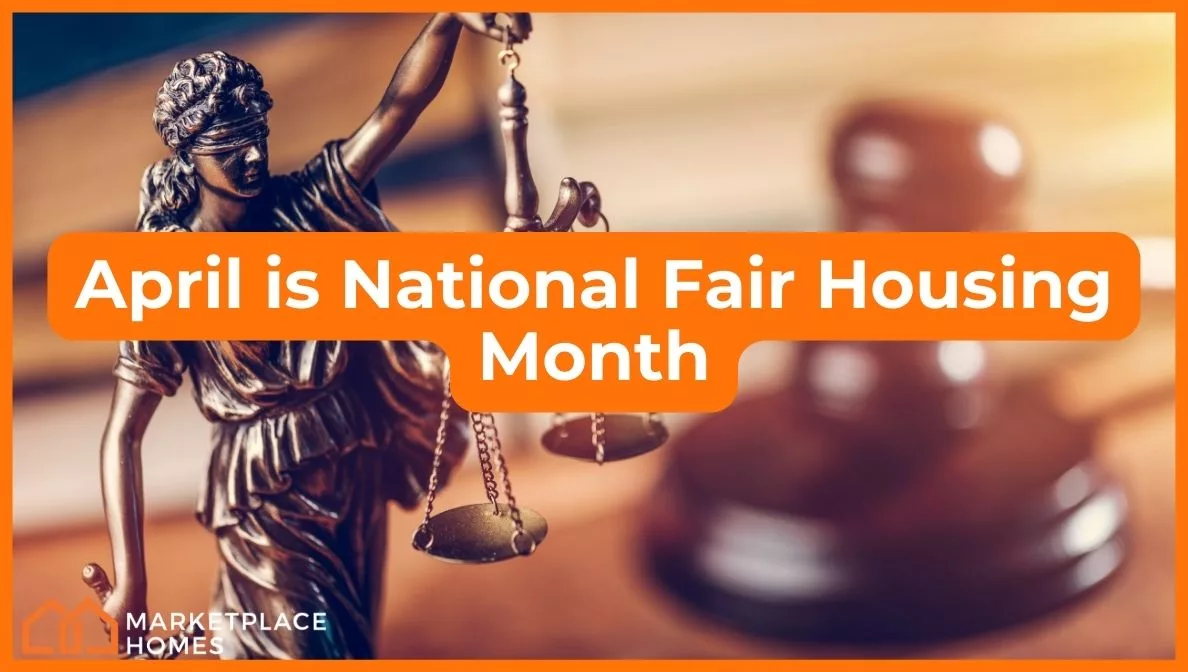Did You Know That April is National Fair Housing Month?
Each year, April is observed as fair housing month throughout America. This is due to the Fair Housing Act, signed into law April 11th, 1968. Fair Housing Rights are one of the most important aspects of real estate, as they allow for fair homeownership and rental opportunities for all.
Why Is the Fair Housing Act Important?
With Fair Housing Rights being signed into law, housing providers became required to provide fair and equal housing opportunities for all. The Fair Housing Act came into law shortly after a major federal lawsuit. This ruling is a civil rights milestone, giving protection to the over 330 million citizens living in the United States.
Fair Housing Laws seek to eliminate housing discrimination, meaning nobody is to be discriminated against in property transactions. The Importance of Fair Housing Act ensures brokers, sellers, lenders, and insurers cannot act in a discriminatory manner against people in the protected classes.
What Are The Protected Classes?
The protected classes were created in juxtaposition with federal and state laws. Fair Housing laws are regulated by the HUD’s Office of Fair Housing and Equal Opportunity. (This is a department in The U.S. Department of Housing and Urban Development, also known as the HUD.)
“The foundation of the HUD’s future is people first,” recently shared Executive Director Adrianne Todman in a press release
While protections may differ from state to state, the main 7 Protected Classes in which it is illegal to discriminate against are: Race, Color, Nationality, Sex, Disability, Familial Status, and Religion.
Some cities and states do require additional required protections. For example, The Fair Chance Ordinance in Michigan ensures that citizens have a fair opportunity to secure housing by regulating the use of criminal background checks and eviction history. In New York, there are additional housing justice protections for victims of domestic abuse and violence, and an increased amount of affordable housing advocacy.
-
It is important to stay up to date with the latest news and initiatives associated with fair housing. As laws are changing to eliminate housing disparity, Americans are encouraged to stay up to date with fair housing organizations.
What If I Experience Fair Housing Discrimination?
It is illegal discrimination to go against fair housing laws. For renters, buyers, and sellers alike, it is critical to understand your civil rights and know the steps to take if you are experiencing discrimination. It is also important to remember that retaliation is illegal.
This includes protection for people who testify, assist, or participate in any fair housing complaints matter on their own, or another’s, behalf. If you have experienced retaliation, you must also report this in your housing discrimination report. Individuals violating the Fair Housing Act can result in tens of thousands of dollars in fines.
Throughout the country, there are many nonprofit organizations that exist to provide advocacy for anyone experiencing fair housing discrimination. For example, the National Fair Housing Alliance, or NFHA, serves as a base of 200 private, nonprofit fair housing organizations and state and local civil rights agencies.
You can contact your local fair housing centers for additional resources, information, and assistance. They can even aid individuals with submitting housing discrimination complaints.
Fair Housing Opportunities for All
Although we have come a far way in eliminating housing discrimination, we aren’t done yet! It is extremely important to stay vigilant and informed on your rights in housing opportunities. All individuals are deserving of fair housing!
At Marketplace Homes, we are proudly committed to providing fair housing opportunities for all. Through our Fair Housing training certifications and continuous dedication to growth, we are devoted to providing fair housing opportunities to each of our clients.
Amalia Graham is a Marketing Coordinator at Marketplace Homes and a student at Wayne State University in Detroit. She is double majoring in Information Systems Management and Marketing, with a concentration in digital analytics. Growing up in a society focused on the online world, Amalia has always been interested in digital analytics/advertising and the intersection of brand identity in our ever-evolving online communities. She’s fast learner and a valuable member of the marketing team!
When she isn’t busy with work or school, Amalia enjoys collecting vinyl records, drinking coffee, and listening to Taylor Swift.

